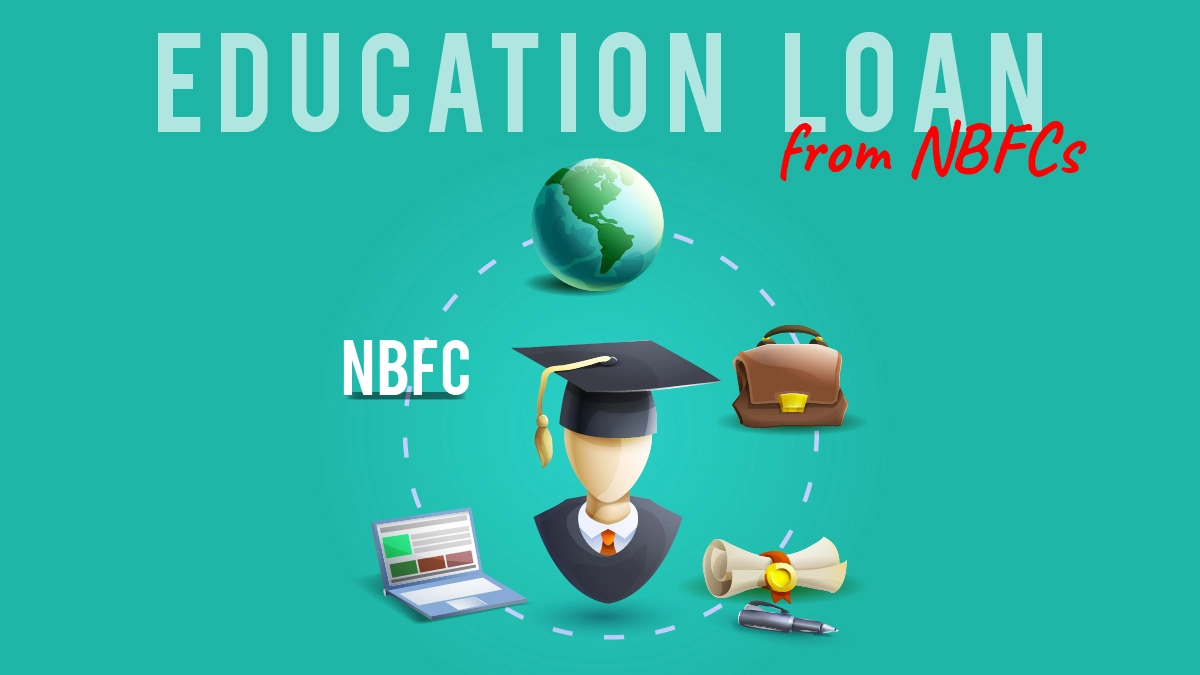https://www.wemakescholars.com/blog/education-loan-income-tax-exemption-section-80-e
Abroad Education Loan | Updated

Loan repayment is a common concern among a lot of students who borrow abroad education loans to fund their higher studies overseas. We all know that repaying an education loan is no cheap affair.
To ease the financial burden on students from economically weaker backgrounds, the Indian government has introduced several education loan interest subsidy schemes, in which the government pays the interest component of the loan for the whole moratorium period.
But, what about students who aren't eligible for subsidy schemes? So under section 80E of the Income Tax Act, 1961 - education loan tax exemption policy, if you have taken an educational loan to fund your higher studies in India or a foreign country, the interest that you pay on the educational loan can be claimed as a deduction. This deduction can be claimed by either you or your co-applicant.
You can also watch the 15th episode of the Loanflix series below, where our expert, Damini Mahajan tells you all about how you can avail this education loan income-tax exemption
What is Section 80 E?
Section 80 E of the Income Tax Act of 1961 states that a certain percentage of the interest paid towards your education loan can be declared by the loan applicant or the co-applicant as non-deductible.
Bear in mind, that education loan tax exemption can only be claimed once the repayment commences. It can only be claimed for higher studies and only if an education loan is taken from Indian lending institutions (Public and Private banks).
Let us consider an example to understand this definition better. A student applies for an education loan of Rs.30 Lakhs to fund his/her higher studies. The course duration is 2 years. The student’s father is the co-applicant here. His annual income is Rs.10 Lakhs. According to the tax deduction bracket set by the income-tax department of the Govt. of India, the father falls under the 30% income-tax deduction bracket which means that the co-applicant has to pay 30% of his salary (Rs.3 Lakhs) as income tax, every year.
Since his child is an education loan applicant, he can claim exemption of a certain percentage of the interest paid towards his child’s education loan under Section 80 E of the Income Tax Act of 1961. Now, let's calculate how Section 80E works.
As mentioned earlier, after the course duration of 2 years and a moratorium period of 6 to 12 months, the applicant is expected to start repaying the loan amount.
According to Section 80E, the education loan applicant or the co-applicant may avail of the education loan income tax exemption. In this case, the father is eligible for an exemption. A co-applicant can use this provision to avail of tax exemptions but only for a period of 8 years after the course is over.
Let's assume that the student plans to repay the entire loan amount within this time. In this case, the interest accumulated over 8 years amounts to Rs. 25 Lakhs. This means that on average, the student has to pay an annual interest of Rs.3.1 Lakhs. Now, under section 80E, the co-applicant here will be able to save 30% of that interest amount. So, he will end up saving close to Rs. 8 lakhs over the loan tenure.
Key features of claiming an education loan income-tax exemption under Section 80 E
There are certain key features that you may have already noted in the above example. To make it simple, we list down the notable ones:
- An education loan income tax exemption can be claimed either by the loan applicant or the co-applicant. So, even if the student returns to India during their loan repayment period, either they or their co-applicant can claim this education loan income-tax exemption. In any case, only one of the two can claim this exemption.
- Education loan tax exemption can be claimed only when you start repaying.
- What is the maximum exemption under 80E? There is no maximum limit on the amount that is allowed as a deduction. You should obtain a certificate from the bank that segregates the principal and interest amount of the education loan remitted by you during the financial year.
- The maximum time duration for which you can claim this exemption is for 8 years or until the interest is repaid completely, whichever is earlier.
- The deduction is done only for the interest component of your loan’s repayment amount, not the principal part of the EMI.
- Education loan tax exemption is only for individuals and not for HUF or any other type of taxpayer.
- Who is eligible for the 80E deduction? It is only applicable to those applicants who have borrowed an education loan from any financial institution and charitable institution approved by the RBI. Loans acquired from family, friends, employers, relatives are not applicable for education loan tax exemption.
Exactly how much money do you save under this education loan income tax exemption?
The above example may have given you a glimpse of how this education loan income tax exemption helps education loan applicants. However, as a loan applicant, it is essential that you understand the exact amount that can be exempted from the yearly income-tax deductions.
Here's a small instance that will make this concept crystal clear to you. The following table shows the 2021-2022 tax slabs set for different income groups by the Income-tax department. This table will help you understand the below example, better.
|
Income Tax Slab |
New Regime Income Tax Slab Rates FY 2021-22 (Applicable for All Individuals & HUF) |
|
Rs 0.0 – Rs 2.5 lakh |
NIL |
|
Rs 2.5 lakh – Rs 3.00 lakh |
5% (tax rebate u/s 87a is available) |
|
Rs 3.00 lakh – Rs 5.00 lakh |
5% (tax rebate u/s 87a is available) |
|
Rs 5.00 lakh- Rs 7.5 lakh |
10% |
|
Rs 7.5 lakh – Rs 10.00 lakh |
15% |
|
Rs 10.00 lakhs – Rs 12.50 lakh |
20% |
|
Rs 12.5 lakhs – Rs 15.00 lakh |
25% |
|
> Rs 15 lakh |
30% |
Assume this:
- You have taken an education loan of Rs.10 Lakhs on a 10% interest rate. In this case, your annual interest amount comes to Rs.1 Lakh. Now, if your co-applicant comes under the 10% income-tax bracket according to the table above, then, depending on who repays the loan amount, you or your co-applicant become eligible for a 10% exemption on the total interest amount under Section 80 E of the Income Tax Act. So, according to this clause, you end up saving 10% of your interest amount every year. In this case, it means that after availing the education loan income tax exemption, you or your co-applicant gets to pay Rs. 90,000 instead of Rs.1 Lakh as interest every year.
- When an applicant avails the education loan income tax exemption, they indirectly save on their annual interest amount. This will automatically bring down the bank's interest rate. In other words, it means that when you claim the exemption, you are paying only 9% of your interest rather than the complete 10%.
Another major point to be noted is that the percentage of income tax exemption applicable to your education loan interest is dependent on the percentage of income tax annually paid by the co-applicant.
- In this situation, if your co-applicant pays 20% of his annual salary as income-tax then after availing an exemption under Section 80 E, you or your co-applicant becomes eligible to avail an exemption of 20% of your total interest amount.
- This will automatically bring the interest rate down to 8% from the 10% set by the bank. The same applies to loan applicants belonging to different tax-payment brackets set by the Income-Tax Department.
- The provision under Section 80E is only applicable to Indian citizens who have borrowed an education loan from Indian banks only.
- This means that a candidate is not eligible to claim this income tax exemption when they borrow from foreign-based lenders.
If you still have doubts about how much you get to save when you claim this education loan income tax exemption, you may get in touch with the financial team at WeMakeScholars. When you do so, do mention the total loan amount you plan to borrow, the interest rate, and the loan tenure. Let’s take a look at the most relevant part of the article.
What is the procedure to claim the Education loan income tax exemption?
- An employee can avail tax benefits on an education loan by informing their company's HR or accounts department so that less TDS is deducted from their salary. You can also claim it by filing tax returns online.
- Declaring that you have made interest payments towards the education loan when you file your annual TDS is the only step to claim this education loan income tax exemption under Section 80 E.
- As a co-applicant, you may provide receipts of your EMI payments as proof while declaring your TDS.
- If the co-applicant is a salaried employee, this proof of payment has to be provided before filing the TDS.
Although Section 80 E aims at helping education loan applicants save money on their repayment amount, there are certain conditions under which, they may not benefit much from this provision. Here is how.
Situations in Which Availing Section 80 E May Not Benefit You
Scenario 1: If the loan applicant is employed abroad after the course completion and the co-applicant doesn't qualify.
When you work in a country other than India, you are not eligible to file an income tax claim under Section 80 E. Also, if your co-applicant's monthly salary is less than Rs.5 Lakh, or if they only earn a substantial amount, then, according to the percentage of education loan income tax exemption as mentioned in the above table, they may not be able to save much under this provision.
Scenario 2: If your co-applicant has retired or is going to retire.
If your co-applicant has already retired with a pension or is nearing their retirement, it is obvious that the monthly pension of your co-applicant will not match up to the salary drawn when they were employed. Generally, after retirement, their taxable income will reduce due to the senior citizen quota.
Scenario 3: Both, the student and the co-applicant are not in India.
If both you and your co-applicant are not present in India as they belong to the NRI community (Non-Resident Indian), and the loan applicant is not planning to be in India during the loan repayment years. In such a case, both you and your co-applicant are not eligible for an education loan exemption under Section 80 E.
The following conclusions may be drawn from the above scenarios:
-
-
- If your co-applicant's annual income is less than Rs. 5,00,000, declaring your interest under Section 80 E may not benefit you much.
- If you do not earn in India during your loan repayment period, you become ineligible to claim an exemption under this provision. The same applies to your co-applicant if they belong to the NRI community.
-
Education loan repayment is the biggest financial liability a student can have. However, the Govt. of India, along with the MHRD, has provided a big relief to students who can actually benefit from an education loan income tax exemption, in the form of Section 80 E.
Although a lot of information about Section 80 E is made available to students and guardians alike on the internet, many are still unaware of the process for availing this exemption. If one directly approaches their respective banks, asking about the subsidy schemes introduced by the Government of India, it is more likely that they would be too preoccupied to pay attention to your queries.
This is the major reason why the founders of WeMakeScholars started the "Loanflix" series a comprehensive web series on education loans and more on YouTube. We assure you that the information provided in each episode of Loanflix will not be found anywhere else on the internet. So do make it a point to watch the 15th episode of this very informative web series, 'Education loan income tax exemption: Section 80 E'.



![Education Loan for Working Professionals [Executive MBA] Education Loan for Working Professionals [Executive MBA]](https://www.wemakescholars.com/uploads/blog/Education-Loan-for-working-professionals.webp)
RAVI KUMAR
Hritik Jain Scholarship Expert
Scholarship Expert
Harish Bojja
Paravesh Saireddy Scholarship Expert
Scholarship Expert